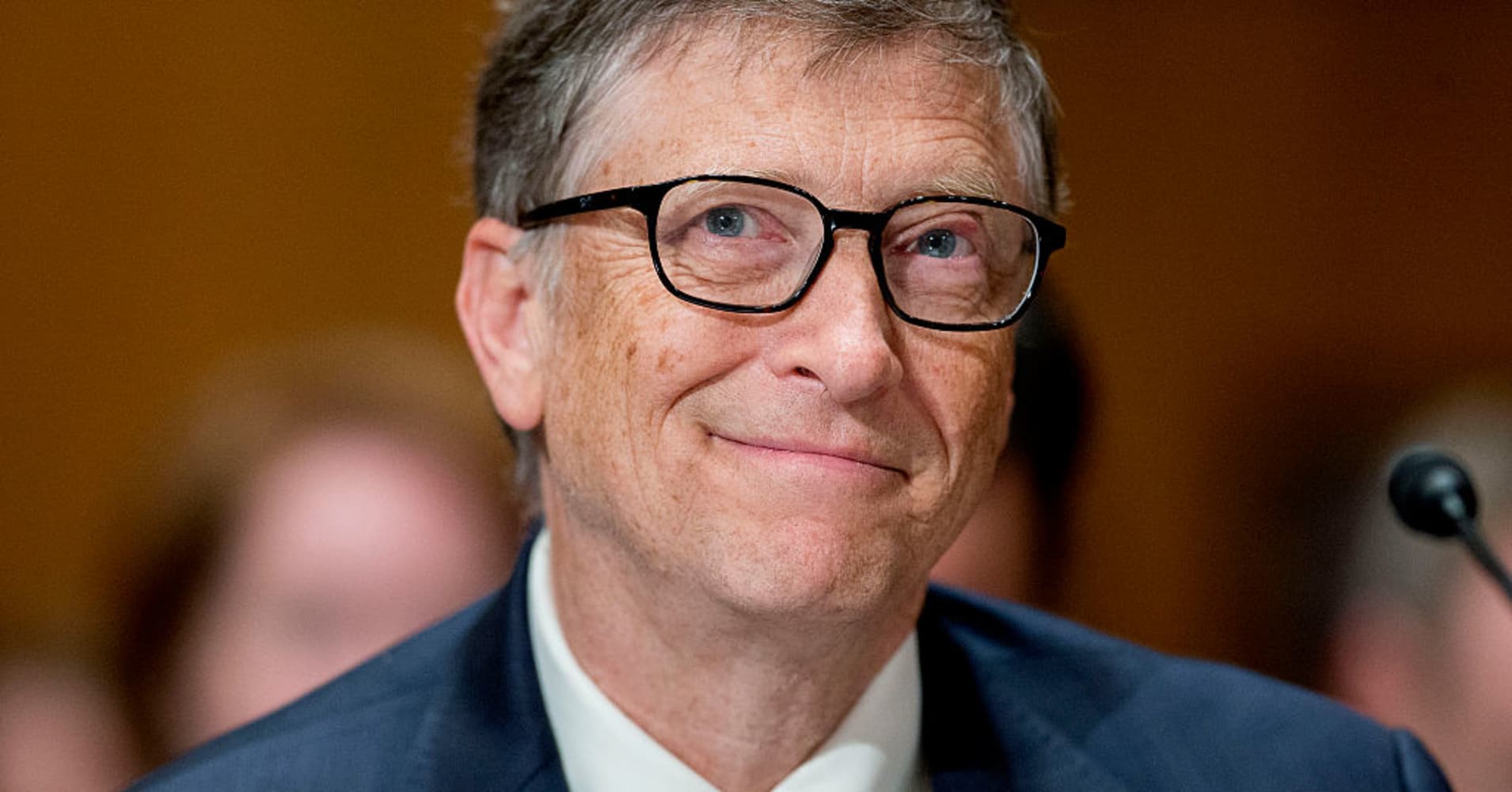
Modern life provides many reasons to worry, from terrorism to climate change to robots stealing people's jobs.
Billionaire philanthropist and Microsoft co-founder Bill Gates recommends a three-part strategy for dealing with what can feel like an onslaught of existential dread: Be selective with what you worry about, think about the a situation in the long view and meditate.
Gates pulled these recommendations from his reading of "21 Lessons for the 21st Century," a book by historian and author Yuval Noah Harari, and shared his thoughts in a December blog post.
Harari's book, says Gates, shares "a useful framework for confronting" fears in the modern age.
I'm a fan of everything @harari_yuval has written, and his latest book is no exception.
Managing that stress might mean shifting your mindset, but doing so will help you put your energy where it can be most productive, says Gates. Here are three recommendations for managing anxiety from Gates' review of Harari's latest book.
Be strategic about where you are expending emotional energy.
According to Harari, the way to manage anxiety is not to try and stop worrying altogether. "It's to know which things to worry about, and how much to worry about them," Gates says.
To help you figure that out, Harari poses key questions such as: "What are today's greatest challenges and most important changes? What should we pay attention to? What should we teach our kids?"
Fundamentally, Harari makes the case for meditation as the key route to calm in the turbulent 21st century, according to Gates.
"Of course [Harari] isn't suggesting that the world's problems will vanish if enough of us start sitting in the lotus position and chanting om," writes Gates. "But he does insist that life in the 21st century demands mindfulness—getting to know ourselves better and seeing how we contribute to suffering in our own lives."
Indeed, meditation has become a popular trend among C-suite executives. Bridgewater Associates' founder, co-chief investment officer and co-chairman Ray Dalio has said the calm of "Transcendental Meditation has probably been the single most important reason for whatever success I've had." And Salesforce founder and CEO Marc Benioff also relies on meditation. He told The New York Times, "I'm trying to listen deeply, and the beginner's mind is informing me to step back, so that I can create what wants to be, not what was. I know that the future does not equal the past. I know that I have to be here in the moment."
As for Gates, he used to think meditation was "a woo-woo thing tied somehow to reincarnation" he said in another December blog post. Now, however, he's more informed. He and his wife, Melinda, meditate two or three times a week for 10 minutes at a time. "We use comfortable chairs; there's no way I could do the lotus position," the 63-year old billionaire says.
"This is easy to mock," says Gates, "but as someone who's taking a course on mindfulness and meditation, I found it compelling."
People have become more dissatisfied and vocal about the world's problems, which can make it seem as if things are worse than ever.
But as Harari's book points out, history can provide important perspective. For example, though it may seem international relations are tense, cooperation and discourse between nations today is far improved from where it was centuries ago.
Thank you @BillGates for including #21_Lessons in your 2018 book recommendations, and for making great videos that encourage people to read. Happy holidays!
"Imagine, [Harari] says, trying to organize an Olympic Games in 1016. It's clearly impossible. Asians, Africans and Europeans don't know that the Americas exist. The Chinese Song Empire doesn't think any other political entity in the world is even close to being its equal. No one even has a flag to fly or anthem to play at the awards ceremony," Gates writes.
"The point is that today's competition among nations—whether on an athletic field or the trading floor—'actually represents an astonishing global agreement,'" Gates says, quoting Harari. "And that global agreement makes it easier to cooperate as well as compete."
Gates says we can keep that agreement in mind the next time you wonder whether the world can solve a global problem like climate change. "Our global cooperation may have taken a couple of steps back in the past two years," Gates writes, "but before that we took a thousand steps forward."
See also:
How Anne and Susan Wojcicki's parents raised the founder of 23andMe and the CEO of YouTube
Like this story? Subscribe to CNBC Make It on YouTube!
No comments:
Post a Comment